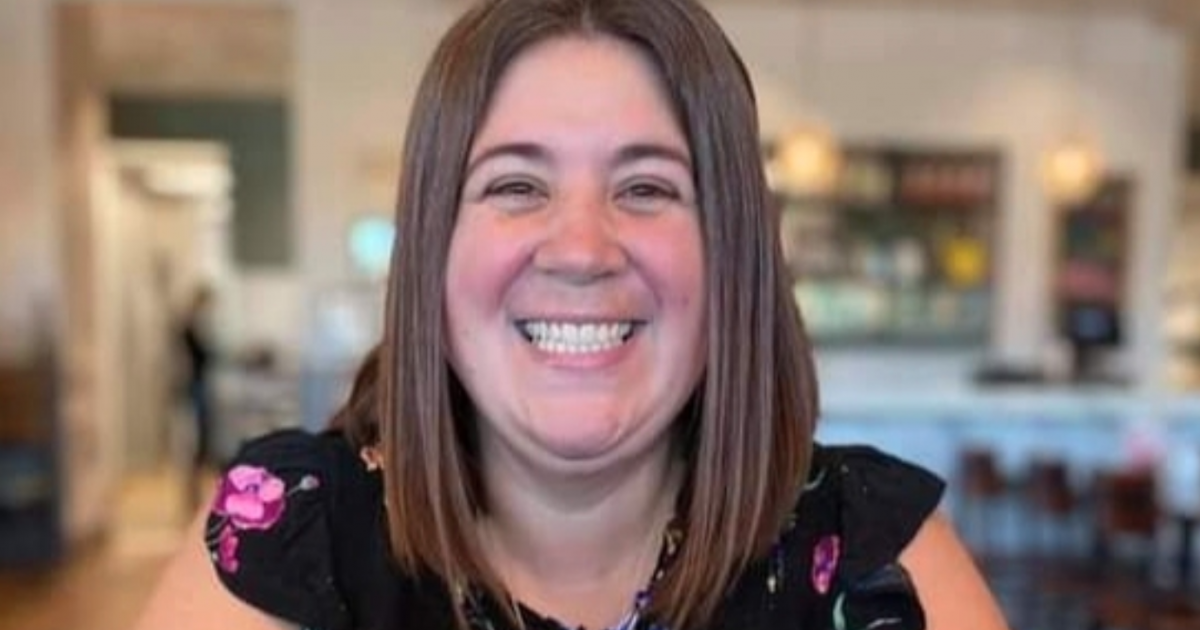A Family's Heartbreak
- Florida teacher Kelly Peterson was battling leukemia and her doctor had advised her to wait to get vaccinated, as she was immunocompromised and going through treatment.
- Kelly’s family said that she had considered going against her doctor and getting the shot, as she was going back to school to teach.
- It is recommended that cancer patients receive the vaccine and the available booster shot, but the timing of the vaccine administration may need to be adjusted for some patients based on their current treatment regimen.
Peterson’s family is now sharing her story to urge others to help protect people like Peterson by getting vaccinated and being more careful. Peterson had been back at school doing what she loved to do: teach.
Read MoreThe family said that Peterson had considered getting the shot despite what her doctor recommended.
“Because her leukemia was so bad at this point, their concern was by getting the vaccine that potentially could put too much stress on her body,” Christin said. “She had voiced concerns many times that if she contracted COVID, she was afraid that it would kill her, and unfortunately that’s what happened.”
The Polk County school district where Kelly was teaching does not have a mask mandate in place.
“Polk County has lost a great soul,” said Polk County teachers union president Stephanie Yocum. “I hope that adults start to set good examples for our kids. If wearing a mask can keep somebody from dying, that should be something that every person should do right now.”
“If it helps even one more person decide, 'Let me get vaccinated,' it's worth it,” Christin added. “People like Kelly can be saved.”
Learning About Blood Cancer
What is a cancer of the blood? Leukemia, lymphoma, and multiple myeloma are cancers that primarily affect the bone marrow, the area in your bones where new blood cells are produced. Because they effect the bone marrow, blood cancers are different from other types of the disease like breast cancer or lung cancer.
Related: Blood Cancer Comes in More than 100 VarietiesHow They Differ & What They Have in Common
Dr. Nina Shah, a hematologist at University of California San Francisco, summarizes blood cancers in a previous interview with SurvivorNet. "One cell got really selfish and decided that it needed to take up all the resources of everybody else, and in doing so, took up space and energy from the rest of the body.”
What is a Blood Cancer How is it Different?
Blood Cancer and the COVID Vaccine
Oncologists recommend that patients with active cancer receive the vaccine and the booster, but say that timing might need to be adjusted for certain cancer patients.
"If patients are receiving chemotherapy, as a general statement we recommend they receive the vaccine at least two weeks after their chemotherapy is complete, and after their immune system has recovered from side effects of chemotherapy," Dr. Mikkael Sekeres, chief of hematology at the University of Miami Sylvester Comprehensive Care Center, told SurvivorNet in a previous interview.
When blood cancer patients do receive a vaccine, it's important they continue protecting themselves.
Research indicates that some cancer patientsincluding people with cancer that affects the blood, bone marrow or lymph nodes, particularly those with chronic lymphocytic leukemiadon't get the same benefit from the COVID-19 vaccine.
"Some patients with blood cancers, specifically CLL, were less likely to develop antibodies to the COVID spike protein. And perhaps that means that those patients may be less protected by the vaccine," Dr. Thomas Martin, a hematologist-oncologist at the University of California San Francisco, explains to SurvivorNet. "This is not news that is unexpected news at this point in time. What we anticipated is that patients with blood cancers, especially those getting therapy would have a lower ability to produce antibodies or to respond to the vaccine compared to normal patients."
Because of this, Dr. Martin recommends blood cancer patients follow these post-vaccine precautions:
- Vaccinated patients undergoing therapy should still avoid large crowds
- Masks and social distancing are also still needed when in public
- Double mask during plane travel and avoid flights longer than six hours
- Avoid Socializing
Dr. Martin offers some critical advice to those battling blood cancer. "I would also say that at the current time, whether you've been vaccinated or not, we are sheltering in place. So if you're a vaccinated patient that is receiving blood cancer therapy, unfortunately at this point in time, we don't think it's a good thing for you to be out at restaurants or socializing with a lot of people," says Dr. Martin.
“You still have to protect yourself," Dr. Martin urges. "You still have to wear the mask. You still have to social distance. Just be smart about the interactions that you have."
The Food and Drug Administration (FDA) has recently approved a booster shot for the immunocompromised as a way to help protect them from COVID-19 and the delta variant. This is important for blood cancer patients.
According to Centers for Disease Control and Prevention (CDC) guidelines, the booster should be administered 28 days or more after the second dose of the Moderna or Pfizer vaccine. Individuals are not allowed to mix vaccines, and no identification or prescription will be required at the vaccine site when receiving the booster shot.
According to Dr. Shah, it's critical that cancer patients going through active treatment get this booster.
"[It's] very important, since we know some cancer patients do not mount a sufficient immune response after the first series of shots," Dr. Shah tells SurvivorNet.
What Should Blood Cancer Patients Do After They Get the COVID-19 Vaccine?
Learn more about SurvivorNet's rigorous medical review process.


